The Preliminary Report on Manufacturers’ Shipments, Inventories and Orders released today by the Census Bureau gives us a revised look at the Advance Report on Durable Goods issued last week. This update has more extensive data on factory orders. Here is the Bureau's summary on new orders:
New orders for manufactured durable goods in June, up following two consecutive monthly decreases, increased $7.7 billion or 3.4 percent to $234.9 billion, virtually unchanged from the previously published 3.4 percent increase. This followed a 2.3 percent May decrease.
Transportation equipment, also up following two consecutive monthly decreases, led the increase, $6.7 billion or 9.3 percent to $78.5 billion.
New orders for manufactured nondurable goods increased $1.0 billion or 0.4 percent to $243.6 billion. Download full PDF
The latest new orders headline number at 3.4% percent was above the Investing.com estimate of 3.0% percent. This series is down -3.0 percent year-over-year (YoY). If we exclude transportation, "core" durable goods came in at 0.6 percent month-over-month (MoM), a bit above the Investing.com estimate of 0.5 percent. However, the core measure is down -4.9 percent YoY.
If we exclude both transportation and defense for an even more fundamental "core", the latest number was up 0.7 percent MoM, but down -3.5 percent YoY.
Core Capital Goods New Orders (nondefense capital goods used in the production of goods or services, excluding aircraft) is an important gauge of business spending, often referred to as Core Capex. It posted a 0.7 percent monthly gain, However, it is down -7.1 percent YoY.
For a look at the big picture and an understanding of the relative size of the major components, here is an area chart of Durable Goods New Orders minus Transportation and Defense with those two components stacked on top. We've also included a dotted line to show the relative size of Core Capex.
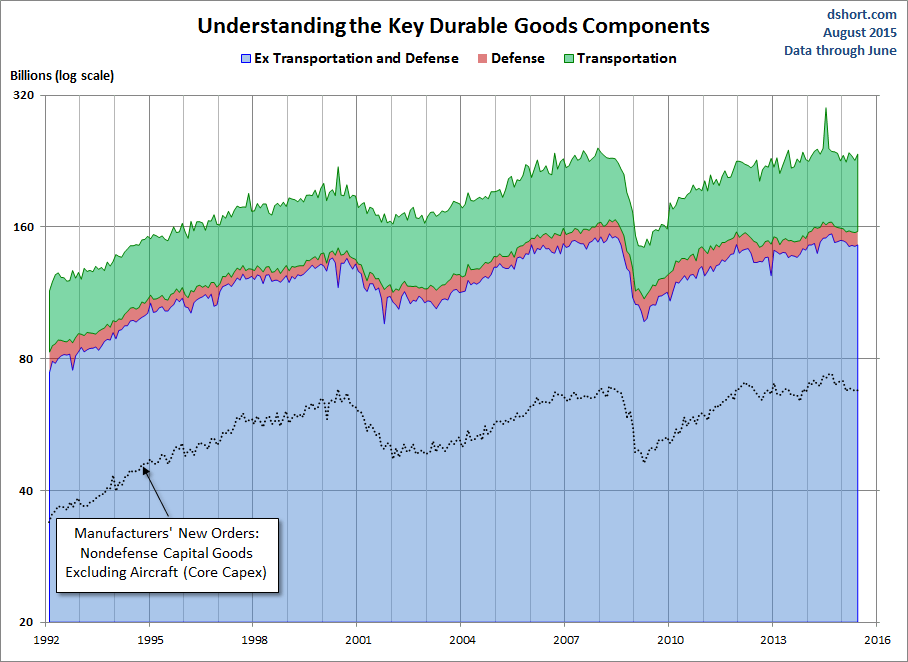
The next chart shows year-over-year percent change in Durable Goods. We've highlighted the value at recession starts and the latest value for this metric.
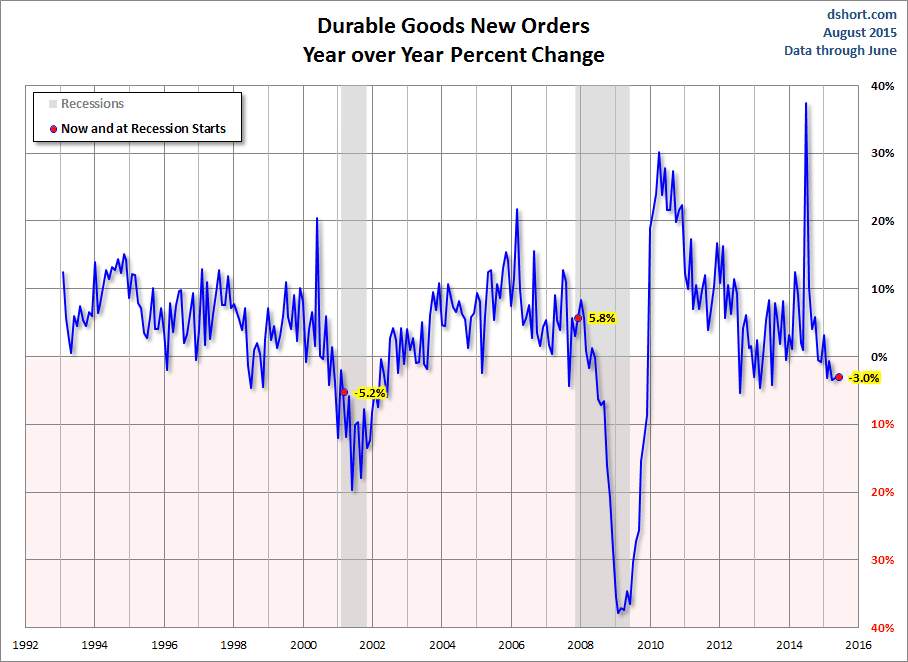
The next chart shows year-over-year percent change in Core Durable Goods (i.e., excluding transportation).
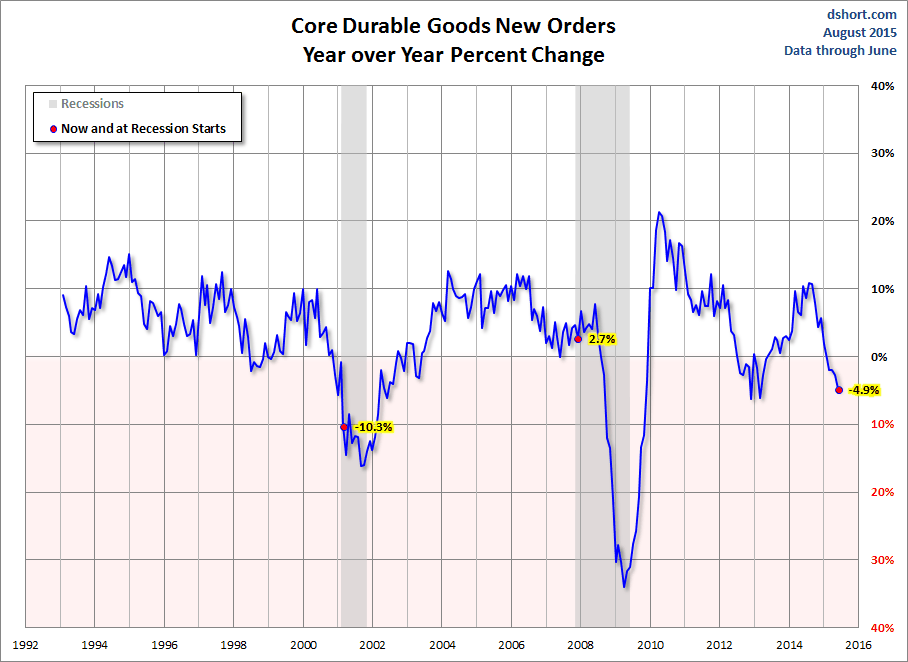
The next chart shows the growth in Core Durable Goods overlaid on the headline number since the turn of the century. This overlay helps us see substantial volatility of the transportation component.
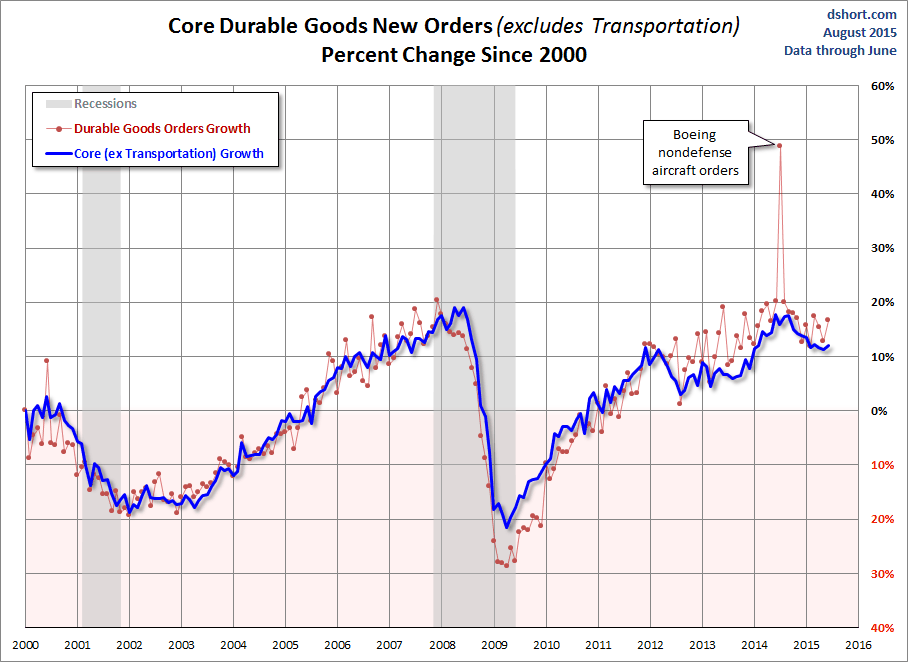
Here is a similar overlay, this time excluding Defense as well as Transportation (an even more "core" number).
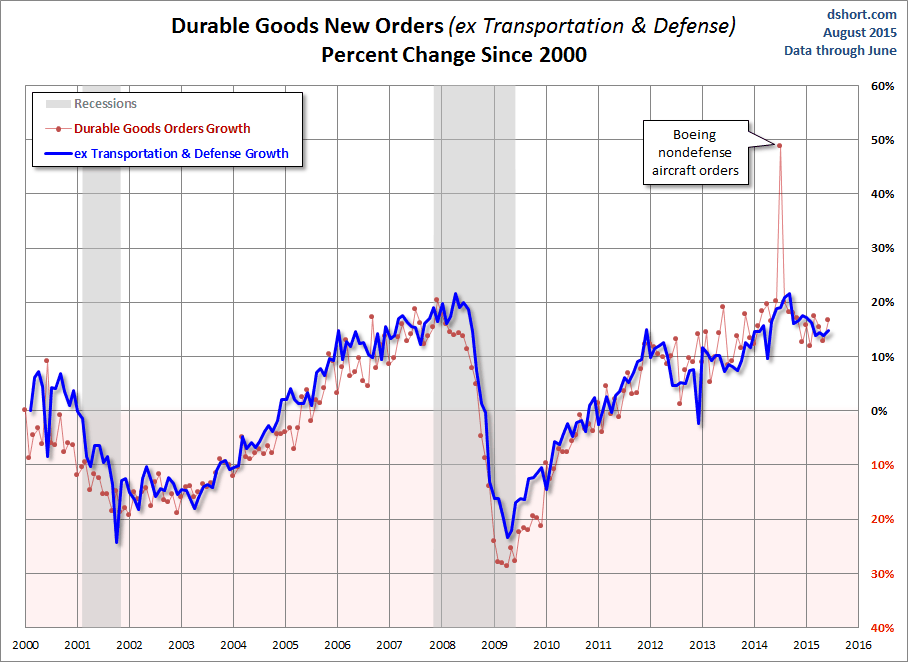
Core Capital Goods
The next two charts take a step back in the durable goods process to show Manufacturers' New Orders for Nondefense Capital Goods Excluding Aircraft, a series often referred to as Core Capex. Here is the year-over-year Core Capex.
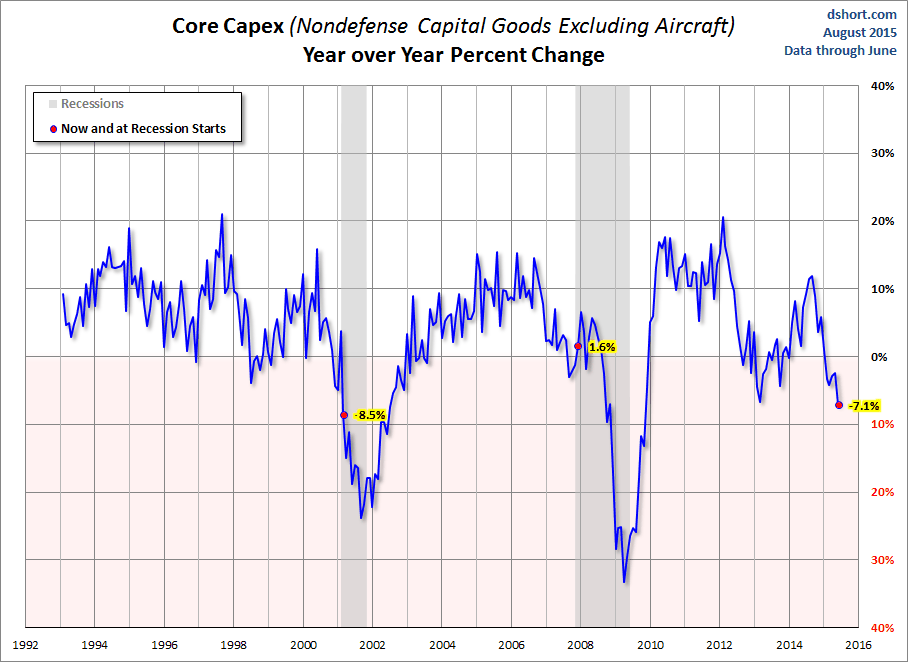
The next chart is an overlay of Core Capital Goods on the larger series showing the percent change of the two since the turn of the century.
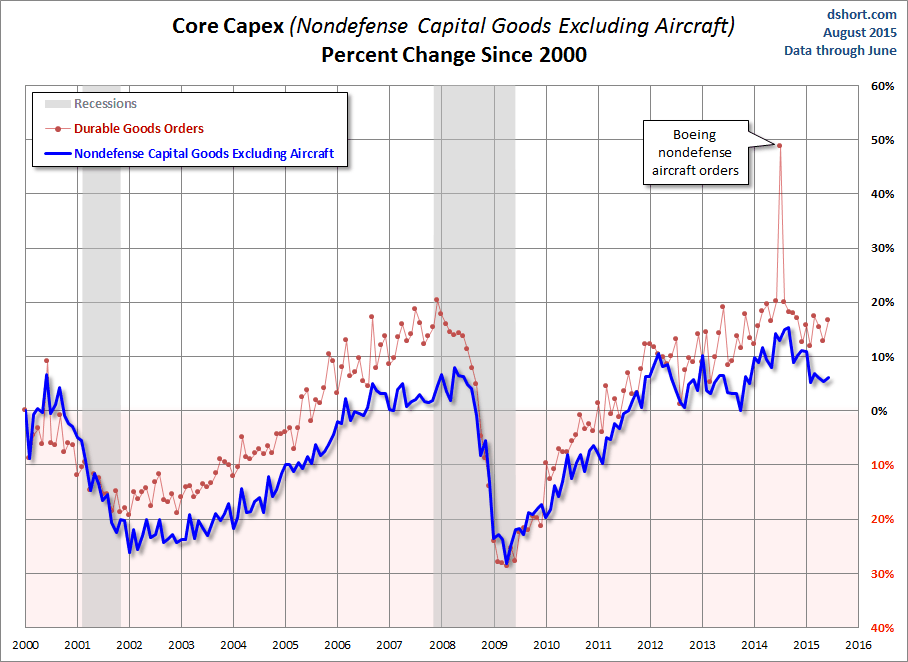
In theory the durable goods orders series should be one of the more important indicators of the economy's health. However, its volatility and susceptibility to major revisions suggest caution in taking the data for any particular month too seriously.
